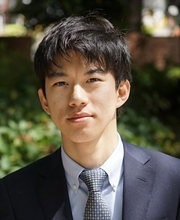QUANTITATIVE RESEARCH METHODS WORKSHOP
Abstract: Scientists have been interested in estimating causal peer effects to understand how people’s behaviors are affected by their network peers. However, it is well known that identification and estimation of causal peer effects are challenging in observational studies for two reasons. The first is the identification challenge due to unmeasured network confounding, for example, homophily bias and contextual confounding. The second issue is network dependence of observations, which one must take into account for valid statistical inference. Negative control variables, also known as placebo variables, have been widely used in observational studies including peer effect analysis over networks, although they have been used primarily for bias detection. In this article, we establish a formal framework which leverages a pair of negative control outcome and exposure variables (double negative controls) to nonparametrically identify causal peer effects in the presence of unmeasured network confounding. We then propose a generalized method of moments estimator for causal peer effects, and establish its consistency and asymptotic normality under an assumption about ψ-network dependence. Finally, we provide a network heteroskedasticity and autocorrelation consistent variance estimator. Our methods are illustrated with an application to peer effects in education. This is my joint work with Eric J. Tchetgen Tchetgen.
Naoki Egami is an Assistant Professor in the Department of Political Science at Columbia University. Egami specializes in political methodology and develops statistical methods for questions in political science and the social sciences. His research has focused on causal inference with interference, issues of external validity, and the development of machine learning methods for the social sciences. He received a Ph.D. from Princeton University (2020) and a BA from the University of Tokyo (2015). Please visit https://naokiegami.com/ for more information.
This workshop is open to the Yale community only and will be held in a hybrid format. Current Yale faculty, students, and staff are encouraged to attend in person. Participants will also be able to attend remotely on Zoom. To receive announcements and invitations to attend either in person or remotely, please subscribe at https://csap.yale.edu/quantitative-research-methods-workshop.
The series is sponsored by the ISPS Center for the Study of American Politics and The Whitney and Betty MacMillan Center for International and Area Studies at Yale with support from the Edward J. and Dorothy Clarke Kempf Fund.
